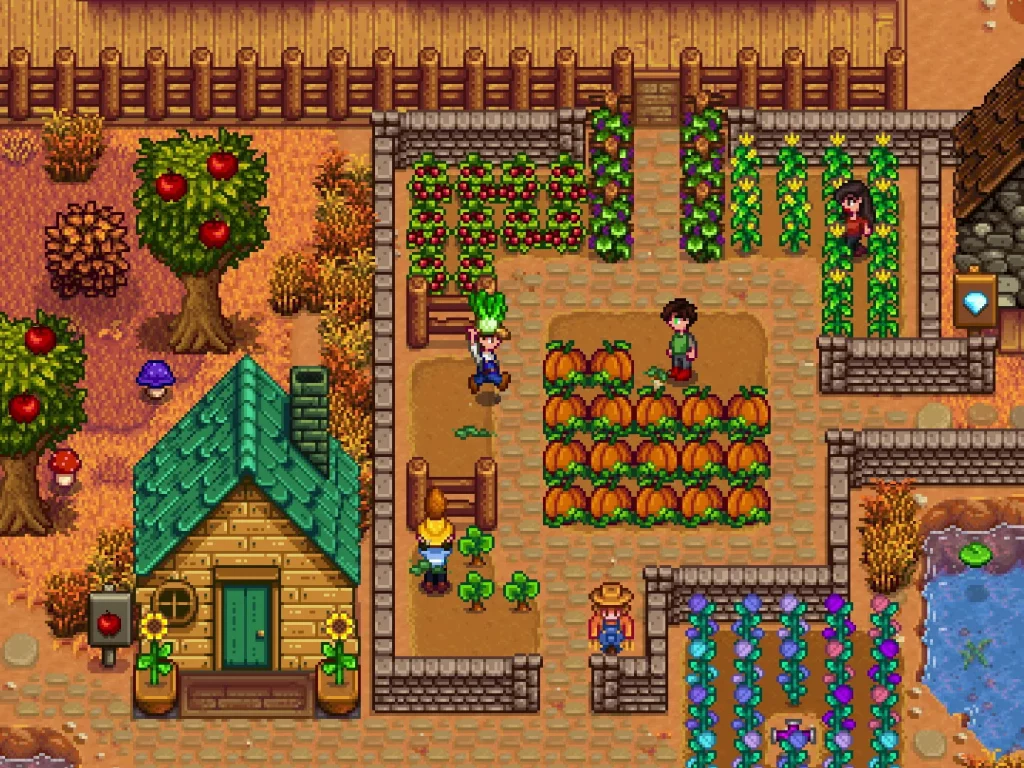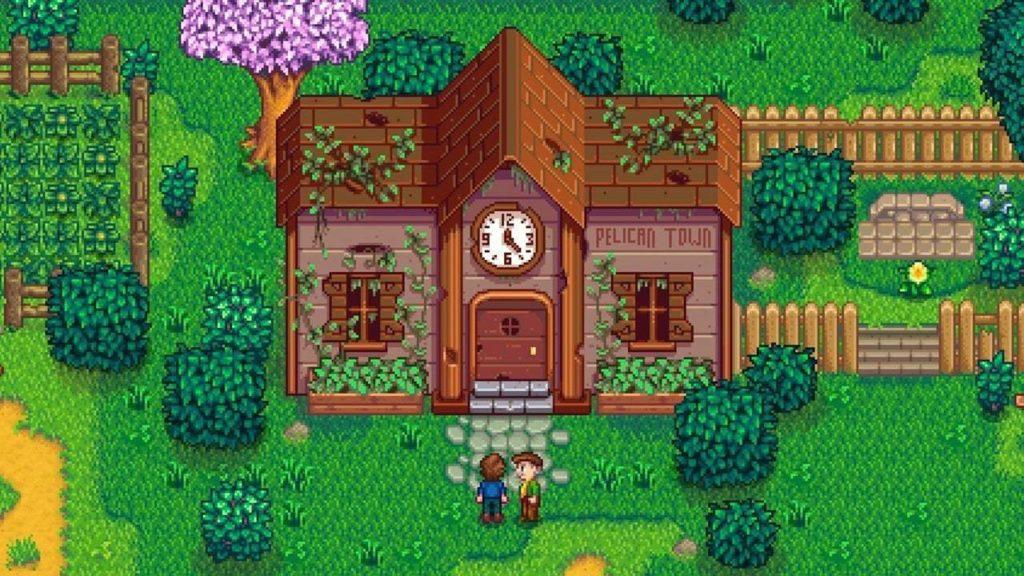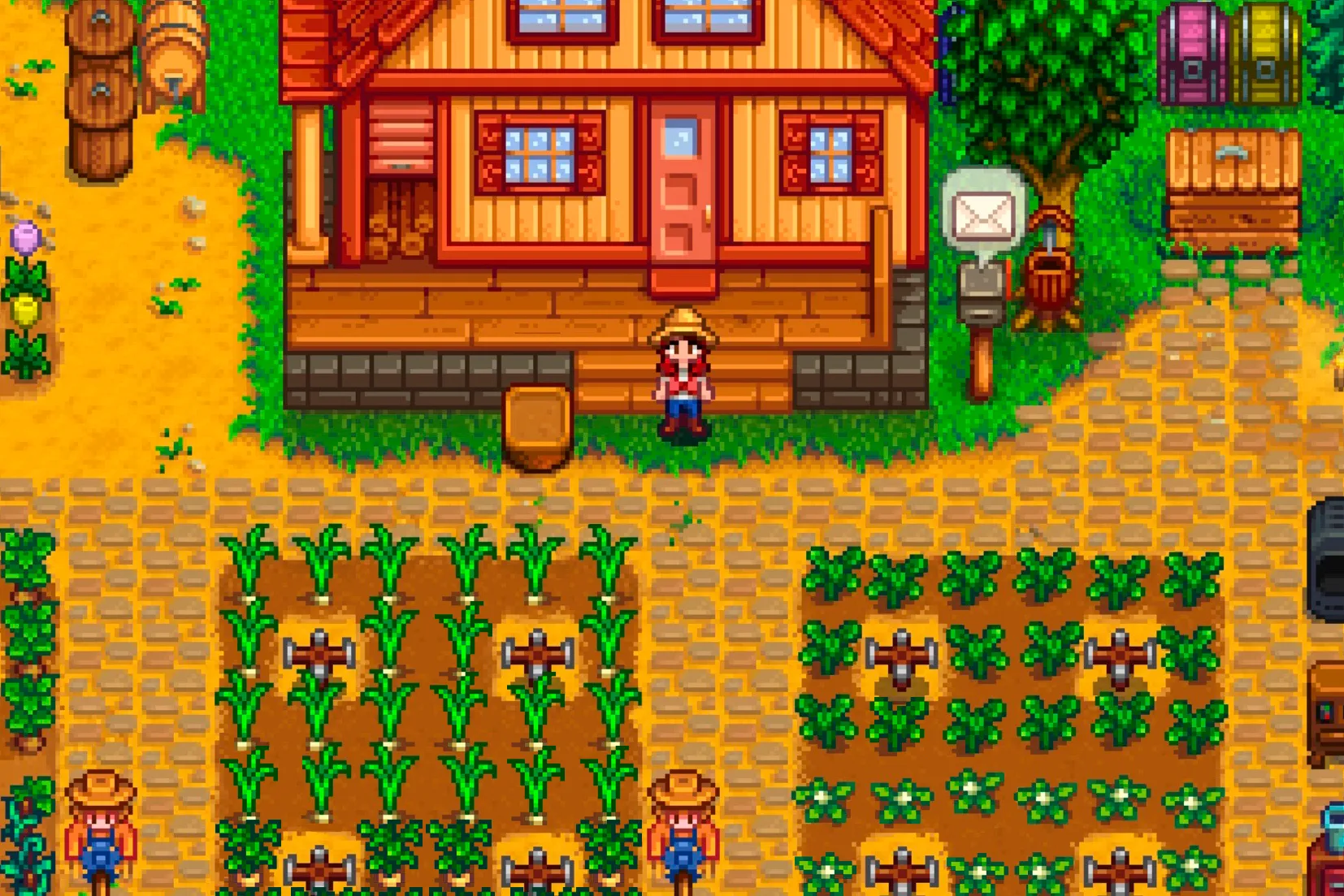Name: Stardew Valley
Developer: Eric “ConcernedApe” Barone
Platforms: PC, Mac/iOS, Android, PS4, Xbox, Nintendo Switch
Stardew Valley is an open-ended farming simulation role-playing game, where the player plays as a new farmer in town, living on a plot of land left to them by their grandpa after they decide to move away from corporate life in the city. The game is generally idyllic, as you tend to your crops, expand your farm, and get to know all the residents in the town, all set to relaxing tunes in the background (which are unique to each season). The game primarily falls under the narrative, discovery, and pastime types of fun, as the narrative slowly unfolds as you progress and discover more, coupled with your simple, personal routine in running the farm. It can also be considered fellowship if you play in multiplayer mode, sharing the farmland with friends. Stardew Valley achieves an overall pleasant experience, leaving you to progress at your own pace and find your own satisfaction within the world.

Mechanically, the game primarily depends on tilling, planting, and watering crops as the base. Gradually, you get to expand to different crops, have a chicken coop, and can engage in fishing and treasure hunting as alternative ways to make money. Regardless, you move forward by selling your goods, saving up money for your farm, as well as gifts for the townsfolk. Depending on your personal taste in games, the progression may be just right, or too slow for you. Personally, I grew a little impatient at the time it took to grow enough crops to make lots of money (and so I installed mods, which can help tailor the game to your preferences). The balance between the game and the player is at a reasonably slow pace, however. When you first start, it gives you time to find your personal rhythm at resource management. You find your own preferred routine at tending your crops, managing your money, and exploring the town, from a single day to over an entire season. This makes the game very approachable for non-gamers, and a nice way to slow down if you are used to more fast-paced games, making Stardew Valley open to a larger audience. The game objects (the goods you buy and sell) are all balanced based on their buying/selling prices in the game, in a transitive relationship. In my opinion, I find them to be reasonably priced. The crops stay in similar price ranges, increasing a little bit in cost but also in selling price when you sell your harvest. More rare items are significantly more expensive, motivating you to keep up a steady farm-to-harvest-to-selling pace in order to purchase them.

There is no overly unbalanced strategy to making money in the game. You can farm, go fishing, or go mining/treasure hunting, and modify those raw materials if you wish, to make money, but each has their own drawbacks. Farming takes more time, but can yield more steady income. Fishing can be more difficult as you have to actively engage in the minigame, and catching rare fish is even harder. However, it can yield more profit depending on the fish. Mining/treasure hunting can certainly be fun as you venture to lower levels and find rarer materials, but it comes with the danger of attacking enemies that cause you to lose your health. Ultimately, the optimal strategy is the one that is most comfortable/fun to the player. They will likely spend lots of time in the game, so their choice will either make the experience fun, or unpleasant. There isn’t much balancing in terms of an asymmetric start to the game, as all players start with the same resources.
Overall, the game delivers a calm, open experience that can be whatever the player makes it to be. I personally wish there was a way to scale the pace of the game by default, but with a large community of mods, the base game can be tailored for that, as well as virtually any other preference that players may have.



